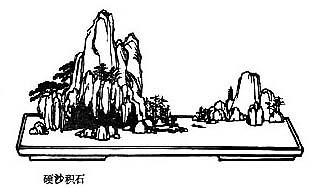孫
子
兵
法
Sun Zi 
 – L'Art de la guerre
– L'Art de la guerre
La stratégie chinoise ou comment s'informer, estimer, diviser, détourner, tromper, et vaincre « sans coup férir ». Tr. Amiot (fr) et Giles (en).
Des neufs sortes de terrain
Sunzi XI. 27.
Dans quelque position que vous puissiez être, si votre armée est inférieure à celle des ennemis, votre seule conduite, si elle est bonne, peut la rendre victorieuse. Il n'est pas suffisant de compter sur les chevaux boiteux ou les chariots embourbés, mais à quoi vous servirait d'être placé avantageusement si vous ne saviez pas tirer parti de votre position ? À quoi servent la bravoure sans la prudence, la valeur sans la ruse ?
Amiot
Hence it is not enough to put one's trust in the tethering of horses, and the burying of chariot wheels in the ground1
The principle on which to manage an army is to set up one standard of courage which all must reach.2
How to make the best of both strong and weak–that is a question involving the proper use of ground.3
Thus the skillful general conducts his army just as though he were leading a single man, willy-nilly, by the hand.4
Giles XI.31-34.

L'Art de la guerre – Sun Zi XI. 27. – Chinois on/off – Français/English
Alias Sun Tzu, Sun Wu, Sun Tse, Sunzi Bingfa, Souen Tseu, Souen Wou, 孫武.
Le Canon des Poèmes, Les Entretiens, La Grande Étude, Le Juste Milieu, Les Trois Caractères, Le Livre des Mutations, De la Voie et la Vertu, 300 poèmes Tang, L'Art de la guerre, Trente-six stratagèmes
Bienvenue, aide, notes, introduction, table.
Index – Contact – Haut de page
